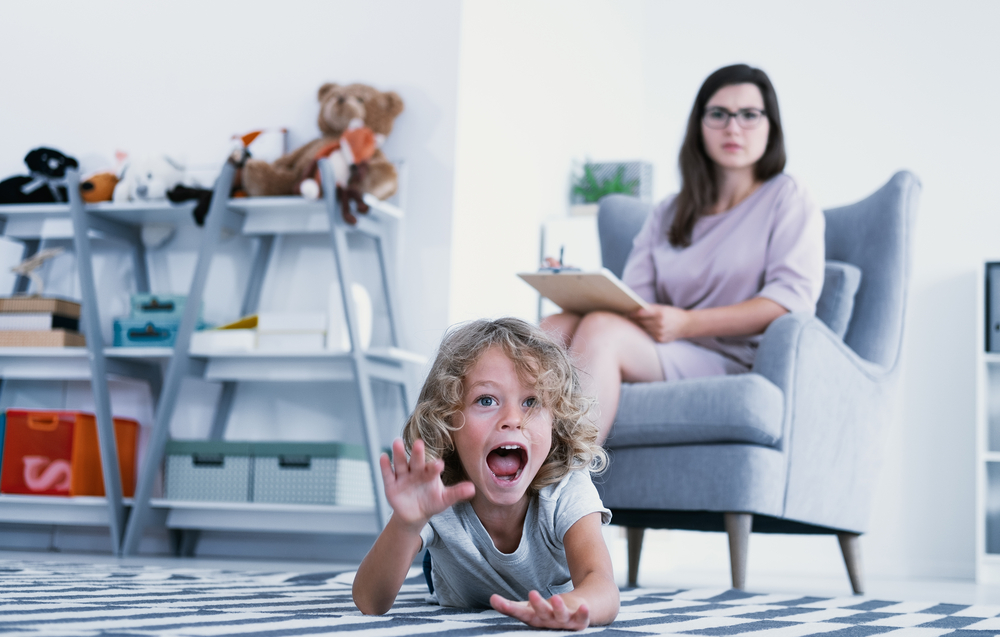
Every child exhibits oppositional behavior occasionally, especially when they are weak, hungry, anxious, or upset. Parents, teachers, and other adults may encounter them arguing, talking back, disobeying, and defying them. For toddlers and young adolescents, opposing conduct is a typical stage of development. But when it happens frequently and consistently compared to other kids of the same age and developmental stage, stands out and has an impact on the child’s social, family, and academic life, it becomes a major worry. Children with Oppositional Defiant Disorder (ODD) have a persistent pattern of acting rebellious, angry, and uncooperative toward adults, which severely impairs their ability to operate on a day-to-day basis.
Symptoms
ODD symptoms can include:
- Frequent fits of rage
- Arguing excessively with grownups
- Frequently challenging laws
- Active disobedience of adult requests and rules and reluctance to abide by them
- Intentional attempts to irritate or anger others
- Blaming others for one’s errors or bad actions
- Being sensitive or easily irritated by others
- Often feeling enraged and resentful
- When upset, rude and hostile speech occurs.
- Positivity and a desire for vengeance
Although the symptoms are typically present in a variety of settings, they could stand out more at home or at school. ODD affects 1–16% of all school-age children and adolescents. Although the exact roots of ODD are unknown, many parents claim that their ODD-suffering child started out more rigid and demanding than their other siblings. Social, psychological, and biological variables could all be involved.
A thorough evaluation should be performed on any youngster exhibiting ODD signs. Other disorders that may be present include learning difficulties, mood disorders (depression, bipolar disorder), anxiety disorders, attention-deficit hyperactivity disorder (ADHD), and mood disorders (depression, bipolar disorder). It could be challenging to reduce ODD symptoms without also treating the underlying problem. ODD in certain kids might progress to behavioral disorder.
Treatment
ODD treatment options include:
- Parental Control training to manage the conduct of the child for parents and others
- Individual psychotherapy helps improve one’s ability to control their rage
- Family counseling to enhance mutual understanding and communication
- Cognitive Skills for Solving Issues Therapy and training to lessen negativity
- social abilities training to develop social skills, adaptability, and peer frustration tolerance
The symptoms of coexisting diseases like ADHD, anxiety, and mood disorders as well as some of the more distressing ODD symptoms may be managed with the aid of medications.
For parents, raising a child with ODD can be very challenging. These parents require assistance and compassion. With ODD, parents can assist their child in the following ways:
Always emphasize the good; whenever a youngster demonstrates adaptability or collaboration, praise and positive reinforcement should be given.
If you’re ready to exacerbate the conflict with your child rather than resolve it, stop and take a break. This serves as an excellent example for your child. If your youngster decides to take a break to avoid retaliating excessively, encourage that decision.
Pick your fights. Give the things you want your child to accomplish a higher priority since the ODD youngster has problems avoiding power struggles. Don’t include extra time for arguing if you send your child to his room for a time-out due to misbehaving. “Your time will begin when you enter your room,” you should say.
Establish age-appropriate, reasonable boundaries with enforceable penalties.
Maintain interests apart from caring for your ODD child so that it doesn’t consume all of your time and resources. Try to collaborate with and gain support from the other adults who are working with your child, such as their teachers, coaches, and spouse.
Utilize healthy lifestyle choices, such as exercise and relaxation, to manage your personal stress. Utilize rest periods and other breaks as necessary.
The positive parenting methods will have an effect on a large number of ODD kids.
Contact Me!
If you believe your child could have Oppositional Defiant Disorder and need a professional’s help, contact me now.